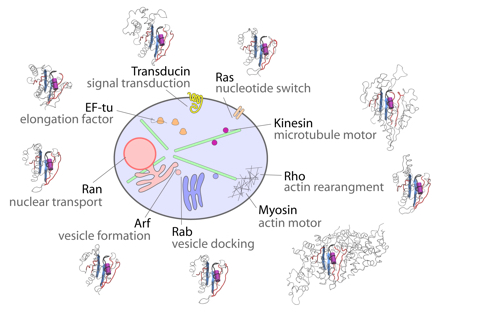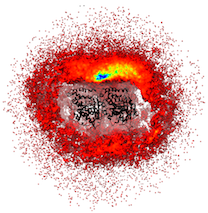molecular_motors
Molecular Motors & Molecular Switches
29/09/14 14:53
Molecular motors and switches comprise a set of related nucleotide binding proteins that lie at the heart of life's processes, from the division and growth of cells to the muscular movement of organisms. They represent attractive targets for drug design as their aberrant function is associated with many diseases including cancer.
Our research aims to decipher the physical mechanisms by which these fascinating natural nanomachines function and how their dysfunction is related to disease. Our recent findings on these systems include how to rationally engineer faster velocity molecular motors and inhibit molecular switches that are malfunctioning in more than 20% of all human cancers.
Our research aims to decipher the physical mechanisms by which these fascinating natural nanomachines function and how their dysfunction is related to disease. Our recent findings on these systems include how to rationally engineer faster velocity molecular motors and inhibit molecular switches that are malfunctioning in more than 20% of all human cancers.

Molecular Motors & the Cytoskeleton
29/09/14 14:53

We are fascinated by molecular motion, particularly that of nature’s motor proteins: kinesin, myosin and dynein. Together with their cellular highways, microtubules and actin filaments, these proteins drive the beating of sperm, the division of cells and the muscular movement of organisms. Our research is focused on deciphering how these mighty molecular motors work, and how to manipulate them for industrial and medical advantage.
A principal aim in the study of molecular motors, is a detailed understanding of how chemical energy, derived from the hydrolysis of ATP, is converted into mechanical energy. Read More...
